EaPEC 2022 – Research, science, scientific wisdom and the societal impact of technology
Published: 18 October 2022
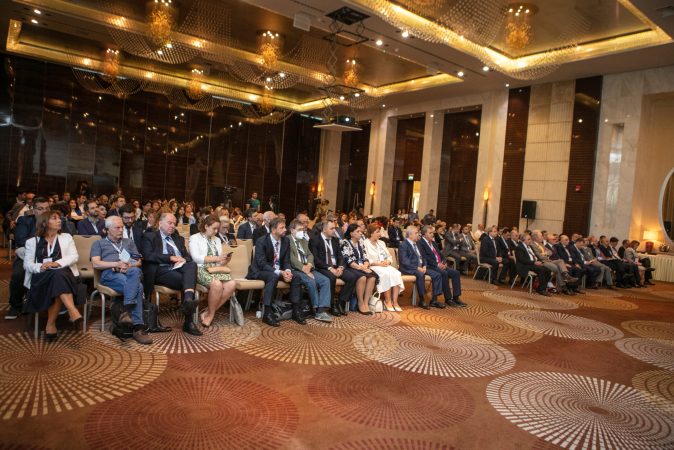
For two days, 30 speakers from 15 countries gave a series of engaging talks on innovative projects at the 5th Eastern Partnership E‑infrastructures Conference (EaPEC 2022). Irina Matthews, EaPConnect Project Manager, in her closing plenary summarised what the conference aimed to achieve:
“The end of this conference is a beginning, continuation of the growth of human connections. When the power of technology is multiplied by the size of the human network – only then technology delivers impact on human lives.
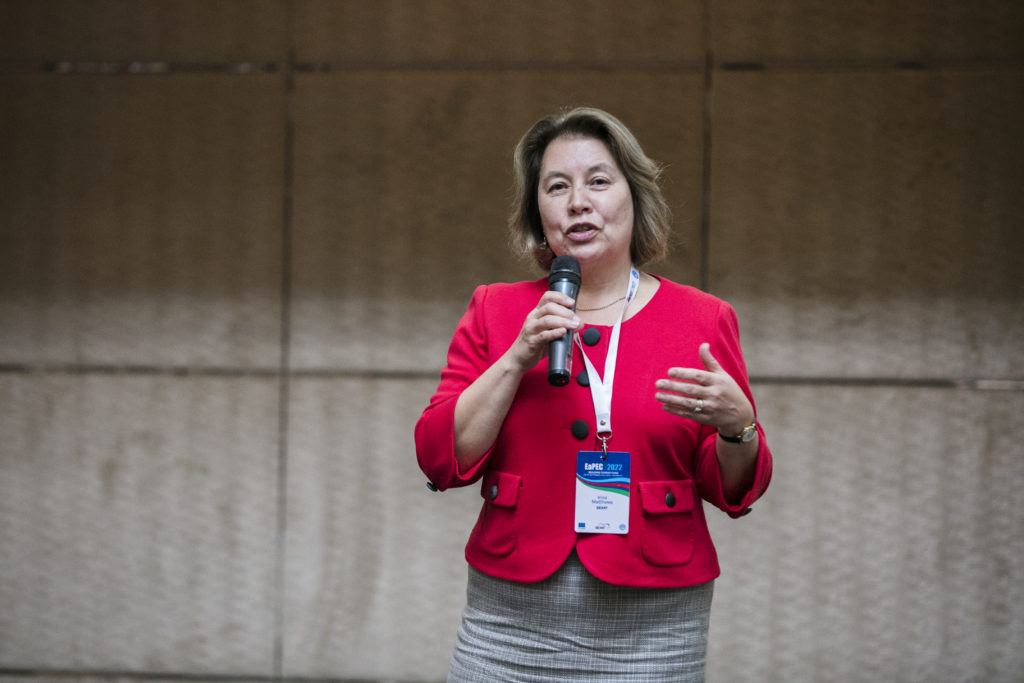
None of the projects or research initiatives presented here is possible without technology and technology-based tools for research. None of these projects happen in isolation – they all are enabled by the collaboration between people and organisations. Our strength is in harnessing the power of technology through building human networks – this is what this conference aimed to highlight and enable“
Irina Matthews, EaPConnect Project Manager
In the packed conference hall of the Marriott Absheron Hotel in Baku over 200 delegates from scientific institutions from Azerbaijan, the EaPConnect member countries and beyond, gathered for the opening plenary ceremony where Azerbaijani government representatives, senior management from the Azerbaijan National Academy of Sciences (ANAS), EC delegation, DG NEAR representatives and GÉANT colleagues were invited on stage for the welcome address. Participants were addressed by Arif Hashimov, Acting President of ANAS; Erik Huizer, CEO of GÉANT; Firudin Gurbanov, Deputy Minister of Science and Education; Samir Mammadov, Deputy Minister of Digital Development and Transport; Victor Bojkov, Head of Cooperation Section, Delegation of the European Union to Azerbaijan; Thibault Charlet, Programme Manager, Digital and Economic Cooperation with Eastern Partnership countries, DG NEAR, European Commission; Rasim Alguliev, Vice President of ANAS.
The conference continued with sessions on e-learning, open science, cybersecurity and big data; all talks registered active audience participation and involvement in busy and informative Q&A sessions. Here are some highlights.
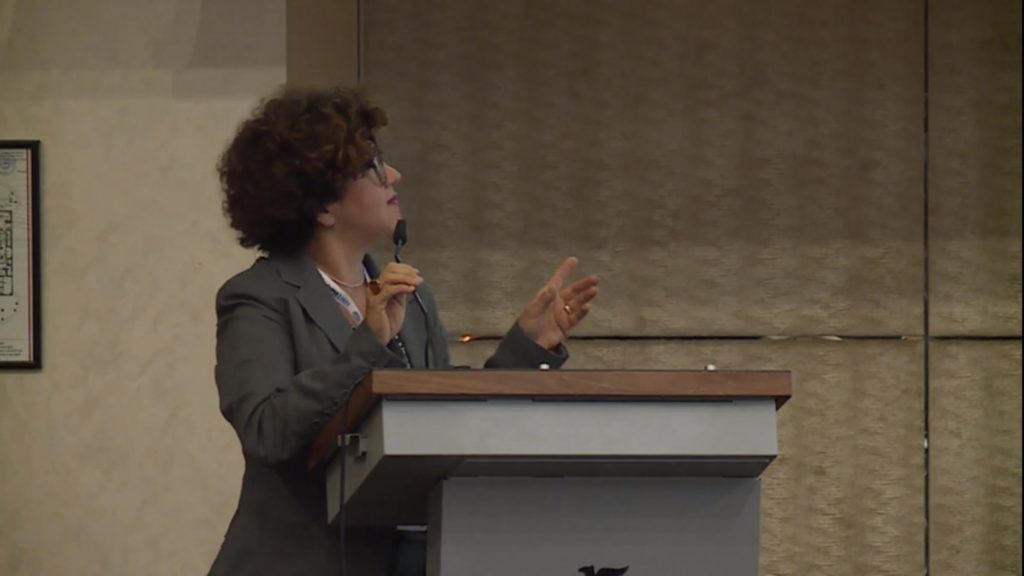
In the e-learning session Sara Di Giorgio from the Italian NREN GARR, presented SKILLS4EOSC, a new ambitious project: a training ecosystem for Open and FAIR science in Europe.
Ans ter Woerds, from SURF talked about the National Digitization Impulse Programme which is “inspired by the wish that universities should take back control of education”. The programme’s main objective is to build a knowledge infrastructure as a source of knowledge and local centres to develop teaching and learning. Eli Shmueli, from IUCC MEITAL, from Israeli started his talk How can NRENs accelerate the Adoption of Learning Technologies: “Our primary objective is to promote an advanced learning technology in higher education in Israel through national and international collaboration to make sure that universities can adapt to 21st century technologies”.
In the Open Science session Mehmet Mirat Satoglu, Director of TÜBİTAK ULAKBIM in Turkey, spoke about the adoption process of Open Science in the country highlighting concerns, questions and his organisation’s experience in providing research e-infrastructure, and summarised their plans for the next 10 years. Zisis Kozlakidis from IARC talked about the promotion of Open Science from an institutional and inter-governmental perspective: “Open Science is a policy priority for the European Commission and it improves the quality, efficiency and responsiveness of research”. Babak Nabiyev Head of the AzScienceNet NOC shared an update on the stages of development of the national R&E network’s technical capabilities, on the connected research institutes and universities, and the services provided to users, highlighting the benefits of being connected to the GÉANT community.
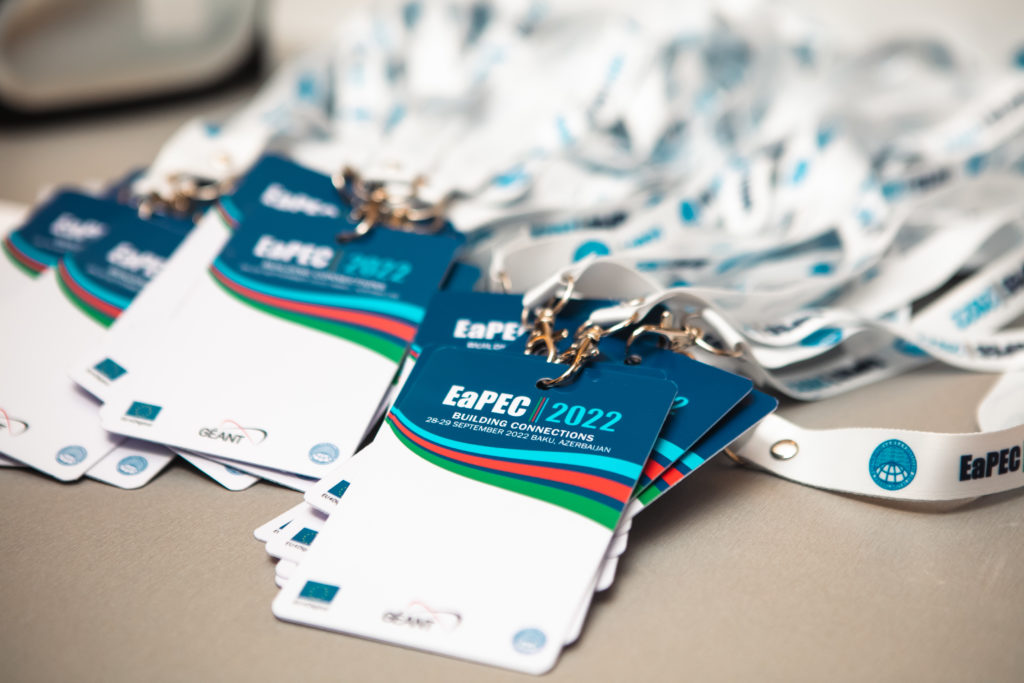
Day 2 provided further insights into the diverse works of science and research presented in sessions on ICT innovation, Earth observation, e-Health and digital humanities, here’s a snapshot of some talks.
In the ICT Innovation session, Juraj Bilic, Vice CEO of CARNET, Croatia, gave a talk about BRAIN, a ground-breaking project about the adoption of Artificial Intelligence (AI) by the education sector in Croatia that will kick off officially in March 2023. “AI is here to stay, the only question that we need to ask ourselves is, what type of ethical aspects should be considered around the use of AI? We need critical thinking, we need to prepare society for life-long learning about AI”.
In the Earth Observation session, Anca Hienola from FMI in Finland gave a thought-provoking talk with the title Open Science in climate research: the good the bad and the ugly.
“Access does not equal accessibility. Open Data is not enough, if combined with scientific illiteracy. For this we need to trust science – the only tool humanity developed to tackle Climate Change. Open Science is a state of mind, it is not only about big initiatives: it’s all about people. The main work resides on the shoulders of scientists as they transition to a new routine, requiring systemic cultural change, infrastructural solutions and innovation”
Anca Hienola, FMI
Yegana Muradova from the Bureau of Earthquake Research in Azerbaijan closed this session with a presentation on the structure of the seismic network in Azerbaijan and explained how seismic data is stored, processed and shared with relevant national and more than 30 international organisations.
Scientists from the Vladimir Andrunachievici Institute of Mathematics and Computer Science in Moldova presented an innovative paper about mass casualty management using an AI based approach developed to support decision makers on disaster sites.
In the digital humanities session Irmak Güneş Yüceil from the Ministry of culture of Turkey presented an exemplary project about cultural heritage management, MUES, National Museum inventory system of Turkey, whose objective is “to bring Anatolian cultural heritage into the future”.
The conference gave a great welcome to Rustam Gadzhiyev from TuRENA, the NREN from Turkmenistan. Rustam also gave an overview of activities of TARENA (Tajik academic research and education network). Rustam referred to the common challenges of the NRENs in Central Asia: the need for funding, the need to becoming more independent, and for this reason the need to increase collaboration with NRENs of the neighbouring countries, to increase user engagement in R&E collaborative projects. “We hope for the continuation of the CAREN project, for the further development of NRENs in our region.”
The closing keynote by Professor Bilge Demirkoz from Middle East Technical University of Ankara, with the title A prelude to a long journey: from Big data to scientific wisdom with its uplifting message gave the audience so much food for thought and delivered a very inspirational, moving and motivational finale to the EaPEC 2022 conference.
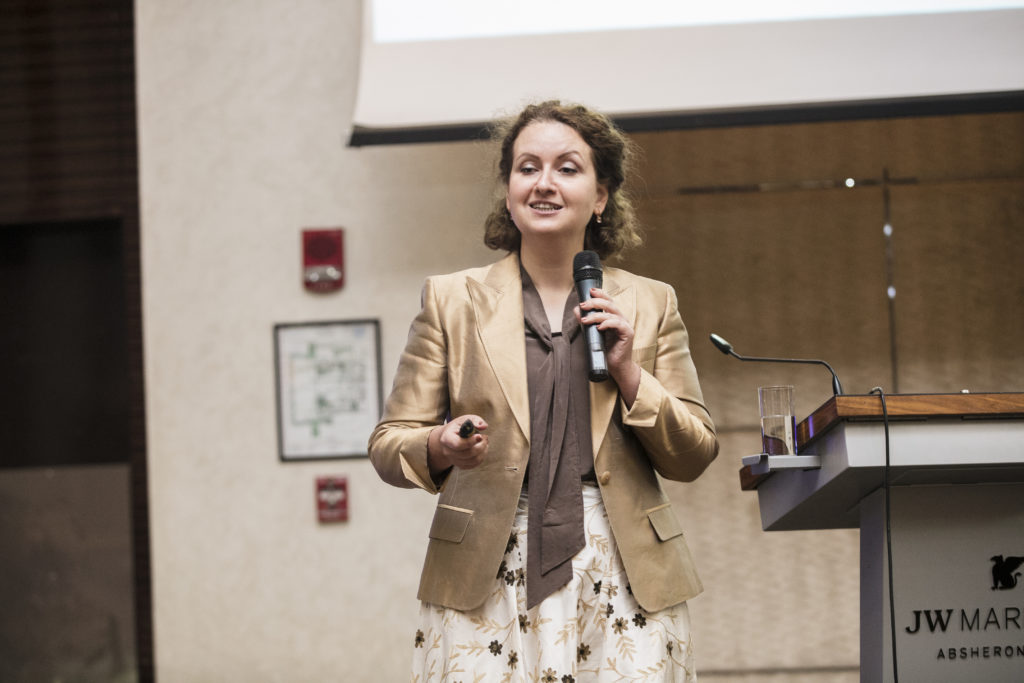
Professor Demirkoz talked with passion about her work at CERN on the Large Hadron Collider, her involvement in space research and science diplomacy activities. The concept of scientific wisdom whereby science touches the mind, the heart the soul reveals true meaning and significance of the scientific research. (A full interview with Professor Demirkoz will be published in CONNECT online issue #41 due in mid-October 2022).
Raimundas Tuminauskas, Head of Network and Service Infrastructure Department, PSNC, Poland and Chair of the EaPEC 2022 Programme Committee reflecting on the sustainability of NRENs commented.
“NRENS consist of diverse organisations – each with its own culture, financial models and target audiences. Each NREN is different. One thing we have in common is that invariably customers (present and future) will hold us to a high standard, and NRENs need to have ability and capacity to meet these evolving demands while responding to the challenges and changes in the wider societal landscape. We thank AzScienceNet for their unparalleled hospitality and support and my personal thanks go to the programme committee for the delivery of the conference’s rich, relevant and diverse content”
Raimundas Tuminauskas, Head of Network and Service Infrastructure Department, PSNC, Poland
All presentations can be downloaded from the EaPEC 2022 conference website and the conference recordings are available on the GÉANT YouTube Channel